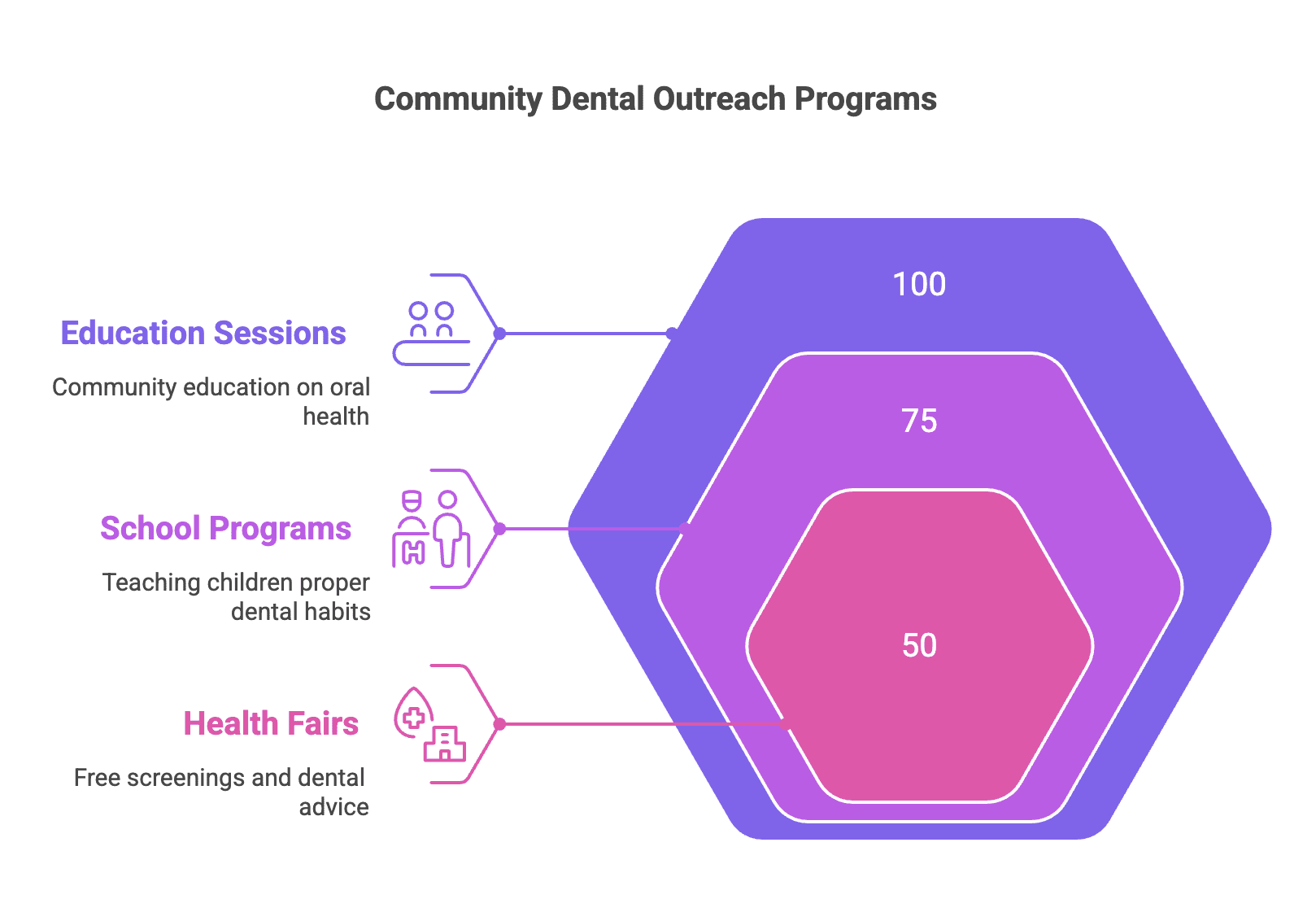Did you know? In the early 1950s, the Australian government decided to fluoridate the water as a way to strengthen their teeth and prevent tooth decay. Although it’s an additional effort to keep the residents’ teeth healthy, it’s still crucial for them to be the ones to care for their teeth, and there’s no better way to do so than learning from their resident local dentist. In today’s article, we’ll talk about the role of dentists in Australia in promoting community health.
Dentists conduct community outreach and educate about oral care.
Having access to oral care is a privilege not many have, and dentists are well aware of this fact. Because of this, Brunswick Dental Studio dentists and other dental health care professionals conduct various outreach programs to help people learn how to take better care of their overall dental health through the following:
Oral health education programs. With their expertise, dentists actively participate and share their knowledge in community outreach programs, where they conduct oral health education sessions in community centers, schools, and even healthcare facilities. These sessions usually cover various topics like learning the proper brushing and flossing techniques and how adopting healthy habits can improve one’s oral health. They also help the community by informing them of the early signs and symptoms of potential oral problems like cavities or gum disease.
Although access to quality dental healthcare costs a lot, dentists also inform the community that they can avoid such expenses if they can avoid dental issues from happening. There are a lot of holistic and amazing ways to keep their teeth healthy. By doing so, they’re nipping the problem in the bud and saving themselves not only extra costs but the pain and inconvenience of a dental problem.
School dental health programs. There’s no better way to instill a good oral routine than at a young age; this is why dentists take the opportunity to teach children via school dental health programs how to care for their teeth. Moreover, they also provide low-cost or free dental services for little ones with disadvantaged backgrounds.
Health fairs. In certain areas, the residents conduct a community health fair, and resident dentists often take part in this. Here, they provide free dental screenings, followed by health advice and certain information on available dental services. By participating in this, they spread awareness about oral health issues, encouraging residents to become more mindful about their oral well-being.
They contribute to oral health research that benefits the whole community.
Technology has significantly shifted dentistry, with the aid of technological innovations and artificial intelligence. But what’s more surprising is we’ve barely scratched the surface of digital dentistry, so we expect more developments to be introduced soon. Dentists take part in this through population research: making observations of patient behavior, keeping an eye out for areas where they can improve the dentist-patient experience, and the like.
They address the oral health gap.
As mentioned above, not a lot of people have access to or have the financial means for dental care. They do their best to reach out to less fortunate communities: families with low income, residents living in remote locations, and indigenous communities. Most of the time, they offer pro bono services just so these vulnerable community members can access dental care.
Dentists advocate for policies that address social determinants of health. Poverty is the number one social determinant of health that influences one’s social well-being. This, along with education and access to healthcare, needs to be addressed by the government, which is why dentists advocate for initiatives that counter these factors so access to quality dental care is accessible to every Australian.
They work with other healthcare professionals. Our mouth and teeth are part of the digestive system, which in turn is part of what makes the body function. Along with other healthcare professionals like doctors and nurses, they address the need to practice healthy habits since all bodily functions are interconnected.
Dentists also advocate for policy change.
Compared to other aspects of health, your dental well-being is often neglected and taken for granted. Some only remember to visit their dentist when they experience a stabbing pain brought about by tooth sensitivity. On the other hand, others scramble to get dental access but can’t afford to do so. For everyone to have access to dental healthcare, dentists rally for policy changes, demanding affordable and quality dental care for all. To do so, they coordinate with different government agencies, stakeholders, and policymakers, hoping to achieve increased funding for public dental health programs, implementations, and strategies.
A dentist’s job extends beyond their clinic; they also do their fair share of promoting community health by taking part in various community programs to help residents, especially the less fortunate ones, to have access to quality health and also to keep them informed on the best practices to do so. Furthermore, dentists also participate in advocacy calling out for policy changes to improve access to quality dental health care for all.





































